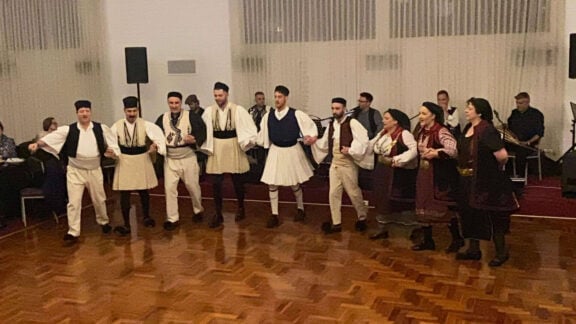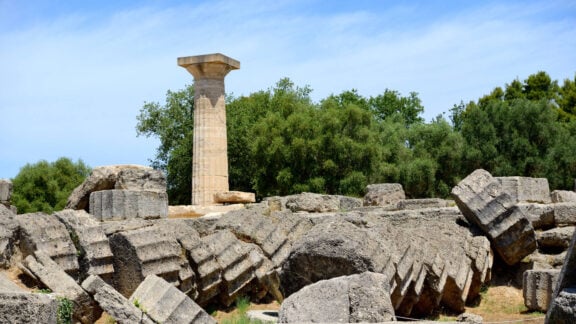Saint Demetrios is one of the most revered and popular saints in the Orthodox Christian Church, along with Saint George. He is the protector of Thessaloniki, the city where he was born, lived, and martyred. His feast day is celebrated on October 26, both in the Orthodox and Catholic traditions, and on November 8 by those who follow the Julian calendar (Old Calendarists).
Born around 280 AD in Thessaloniki, during the reign of Emperor Maximian, Demetrios came from an aristocratic family. At a young age, he joined the Roman army and rose to the rank of chiliarch (commander of a thousand men) by the age of just 22.
Naturally inquisitive and intellectually inclined, he sought higher truths and found them in Christianity, becoming a passionate preacher of the faith in Thessaloniki.
He gathered a circle of young followers and taught them the Bible in the underground tunnels near the city’s public baths.
During one of these gatherings, pagans arrested him and brought him before Emperor Maximian, who was staying in Thessaloniki at the time. When the emperor demanded that Demetrios renounce his faith, he boldly replied, “I believe only in my Christ.” Infuriated by his officer’s steadfastness, Maximian ordered him to be imprisoned.
Meanwhile, one of Demetrios’ disciples, Nestor, appeared at the stadium in Thessaloniki, where the emperor was hosting athletic games. Nestor requested to fight the undefeated pagan wrestler Lyaeus, a giant hailing from Sirmium in Pannonia (modern-day Mitrovica, Serbia), on behalf of the Christians.
With faith in God’s grace and assistance, Nestor entered the arena and not only defeated but killed Lyaeus, much like David did to Goliath in the Old Testament. Enraged by the loss of his champion, Maximian ordered Nestor to be beheaded and Demetrios to be killed by spears.
Demetrios was buried at the site of his martyrdom, where a prominent church was later built in his honor. From his tomb, a fragrant oil (myrrh) flowed, earning him the title “Myrrh-Streamer”.
Few saints have been as closely associated with a city as Saint Demetrios is with Thessaloniki.
Throughout history, Greeks have considered him the city’s protector, fighting alongside its people against invaders such as the Slavs, Avars, Arabs, Normans, Franks, and Turks. It is no coincidence that the Greek army liberated Thessaloniki on Saint Demetrios’ feast day, October 26, 1912, an event regarded as miraculous.









